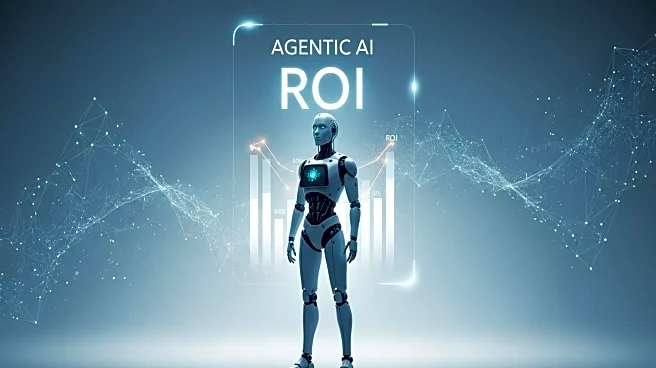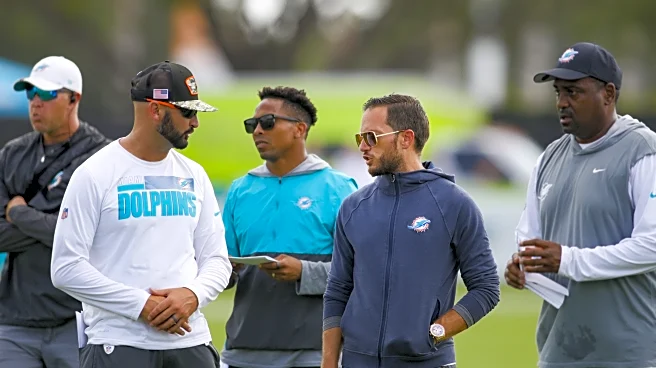What's Happening?
The HR Tech 2025 conference in Las Vegas showcased significant advancements in HR technology, with a strong emphasis on agentic AI and its integration into HR systems. Thousands of HR leaders, vendors, and innovators gathered to discuss the future of HR tech amidst a rapidly changing business environment. Key themes included the evolution of people analytics, payroll reinvention, and the importance of ROI, trust, and ethical considerations in technology adoption. Agentic AI, which allows systems to act autonomously on behalf of users, emerged as a central topic, with vendors demonstrating its capabilities in recruitment, talent mobility, and employee support. The conference also highlighted the need for HR tech to deliver measurable business impact and trustworthy behavior, with vendors focusing on auditability and governance controls.
Why It's Important?
The developments at HR Tech 2025 are crucial for HR leaders as they navigate the integration of advanced technologies like agentic AI into their organizations. The focus on ROI and ethical considerations reflects a shift towards ensuring that HR tech delivers tangible business outcomes and operates responsibly. This is particularly important in a competitive landscape where technology must prove its value beyond mere functionality. The emphasis on trust and transparency in AI systems is vital for maintaining employee confidence and compliance with emerging regulations. As HR tech evolves, organizations that successfully integrate these technologies will likely see improvements in recruitment efficiency, talent management, and overall workforce productivity.
What's Next?
HR leaders are encouraged to align new technology initiatives with business and talent strategies, focusing on specific outcomes such as reducing time-to-fill and improving retention. Establishing AI oversight frameworks can help manage risks associated with new tools, ensuring transparency and mitigating bias. Upskilling HR teams and managers in AI literacy will be essential for effective adoption and maximizing the value of tech investments. Additionally, HR leaders should prioritize measurable ROI for AI projects, holding vendors accountable for delivering observable impact. The conference hinted at future trends, such as the adoption of candidate integrity tools in talent acquisition systems, which could become standard practice.
Beyond the Headlines
The integration of agentic AI into HR systems represents a broader shift towards autonomous technology in the workplace, raising questions about the balance between automation and human oversight. Ethical considerations, such as bias detection and transparency, are becoming increasingly important as AI systems take on more decision-making roles. The democratization of analytics, allowing frontline managers access to real-time insights, could transform managerial workflows and decision-making processes. As organizations adopt these technologies, they must navigate cultural and strategic challenges to ensure successful implementation and employee acceptance.











